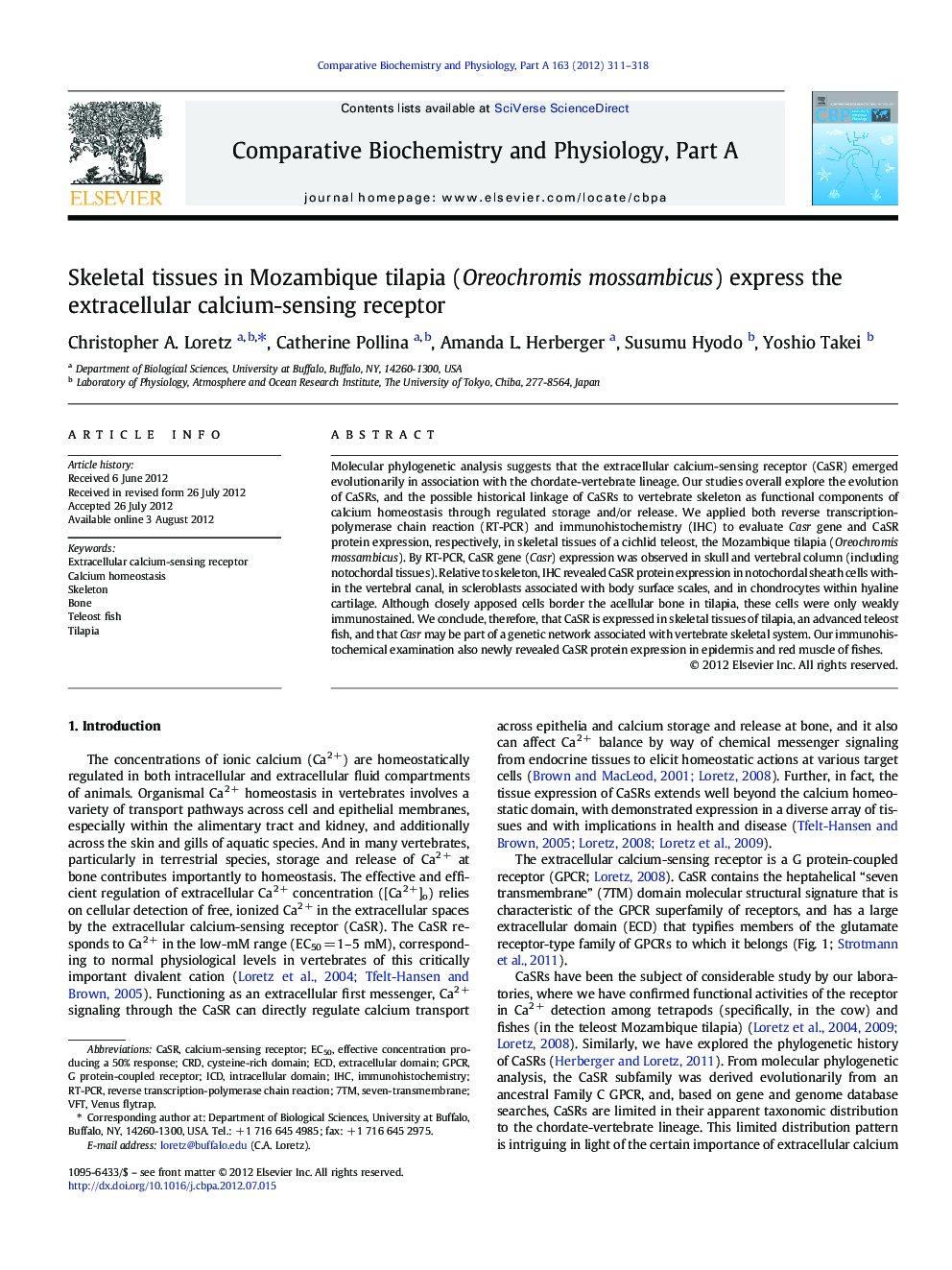| Article ID | Journal | Published Year | Pages | File Type |
|---|---|---|---|---|
| 8318699 | Comparative Biochemistry and Physiology Part A: Molecular & Integrative Physiology | 2012 | 8 Pages |
Abstract
Molecular phylogenetic analysis suggests that the extracellular calcium-sensing receptor (CaSR) emerged evolutionarily in association with the chordate-vertebrate lineage. Our studies overall explore the evolution of CaSRs, and the possible historical linkage of CaSRs to vertebrate skeleton as functional components of calcium homeostasis through regulated storage and/or release. We applied both reverse transcription-polymerase chain reaction (RT-PCR) and immunohistochemistry (IHC) to evaluate Casr gene and CaSR protein expression, respectively, in skeletal tissues of a cichlid teleost, the Mozambique tilapia (Oreochromis mossambicus). By RT-PCR, CaSR gene (Casr) expression was observed in skull and vertebral column (including notochordal tissues). Relative to skeleton, IHC revealed CaSR protein expression in notochordal sheath cells within the vertebral canal, in scleroblasts associated with body surface scales, and in chondrocytes within hyaline cartilage. Although closely apposed cells border the acellular bone in tilapia, these cells were only weakly immunostained. We conclude, therefore, that CaSR is expressed in skeletal tissues of tilapia, an advanced teleost fish, and that Casr may be part of a genetic network associated with vertebrate skeletal system. Our immunohistochemical examination also newly revealed CaSR protein expression in epidermis and red muscle of fishes.
Keywords
CaSRECDRT-PCREC50VFTCRD7TMGPCRBoneSkeletonIHCImmunohistochemistryTilapiaextracellular domainintracellular domaincysteine-rich domainICDTeleost fishseven-transmembraneCalcium homeostasisreverse transcription-polymerase chain reactionVenus flytrapextracellular calcium-sensing receptorCalcium-sensing receptorG protein-coupled receptor
Related Topics
Life Sciences
Biochemistry, Genetics and Molecular Biology
Biochemistry
Authors
Christopher A. Loretz, Catherine Pollina, Amanda L. Herberger, Susumu Hyodo, Yoshio Takei,
